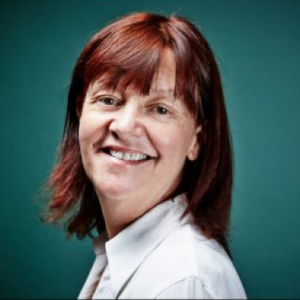 A misfire from ALLi at the community of British indie authors?
A misfire from ALLi at the community of British indie authors?
Lately it’s become a time of uncertainty for indie authors. Amazon has been making changes to their policies left, right, and center. Brexit happened, maybe affecting taxes for authors selling in Europe when the UK leaves the EU (whenever that will be). Many new mavericks have entered the arena, managing to rip off new authors unsure of their pitch.
But what really gets me, especially in this climate, is the surge of indie author services and groups who have started gatekeeping. Surely the point of being an indie author is that you level the playing field, and yet we are seeing more and more grasps of power by those who have created a voice for themselves in the industry – these people are just like the rest of us authors, but somehow are pushing fingers into more pies.
So it’s both no surprise, and totally shocking to me that ALLi, the so-called “inclusive” author support group has now started gatekeeping. Unlike SPR or AMC, that offer front-facing/free membership to authors, there’s always been a fee of around $200 a year to join ALLi’s social media groups and receive a .jpeg badge. They have now split their club to make a “power author” sector, which is yet another closed group for “successful” authors to talk to one another “all for the price of a cup of coffee.” Basically, gatekeeping is taking place exactly where it shouldn’t – from inside the indie community itself.
There’s been a “furore” about the move, and it’s not at all a surprise that authors don’t want to be judged on sales numbers. You can read about it here at Publishing Perspectives.

Orna Ross – did she just kill her own business model?
A few years ago, it seemed that everyone had to belong to ALLi. It was on the tick-list of something you had to do to be “someone” in self-publishing. Their author members started “watchdogging” everyone else, and Orna Ross built herself up as a voicebox for indie publishers. The problems authors cite online with ALLi been many: closed Facebook and Linkedin groups that offer little but links to the free website content. Tips and tricks for author success from Orna herself, whose Amazon rankings flounder in the half-millions. An office listed in Clerkenwell, London, which, if you manage to call as I did for comment, there is actually nothing but a phone-answering service. But still, Ross remains a loud voice in indie publishing.
Ross says of the move, “To my knowledge, there is no other private forum where such ‘power authors’ with an indie mindset can get together to talk about possibilities across genres, across territories, and across formats, to see what new avenues might be possible for authors.”
The reason for there being no group like it already seems an obvious point lost on Ms. Ross – that indie authors want to be free to talk to each other. It’s not supposed to be an organized mob of royals laying down rules for other authors, surely? This is a complete misfire of an idea that even suggests that you submit to literary agents – so now we are supposed to become a “real” author too? Could it be that indie authors are just waiting for the day when they can be trad published? No! Completely not! This is a movement that ALLi said they were behind, only to encourage the submission of books to an agent!
The idea indie authors are a sad bunch of Pinocchios searching for the Blue Fairy has to end. This idea heightens that notion.
Groups like ALLi have become sacred cows. The truth is, we don’t need authors judging the crap out of each other in any form, let alone in an organized group. That’s just bullying.
This trend Ross is labeling “Self-Publishing 2.0” for no good reason except she’s coined it, is actually a trend that falls into a negative, nasty place for indie authors. We don’t want segregation.
If this trend really is taking off, are we to see Amazon pushing indie books into their own category? How about BookBub, who now only accept certain books in the indie world, pushing towards big mainstream publishers only? If this is a trend, I do not understand why ALLi would want to be the pioneers.
Ghettoizing in this way is not “niche culture,” it’s a way of making extra money off of unsuspecting authors – it seems by offering a “power author” option, ALLi hopes to surround themselves with far more knowledgeable and successful authors than themselves to boost their credibility (and their own books) while making a profit with a higher fee, a point offered up on the announcement at Publishing Perspectives.
I hope this cognitive dissonance ends soon, because until then, it’s the blind leading the blind when nobody should be leading anyone. Maybe not authors are made equal, but we all have the right to an equal voice and a right to a community. ALLi might have just lost a lot of authors’ trust with this duff move.
Gatekeeping has to stop.
Get an Editorial Review | Get Amazon Sales & Reviews | Get Edited | Publish Your Book | Enter the SPR Book Awards | Other Marketing Services






















Leave A Comment